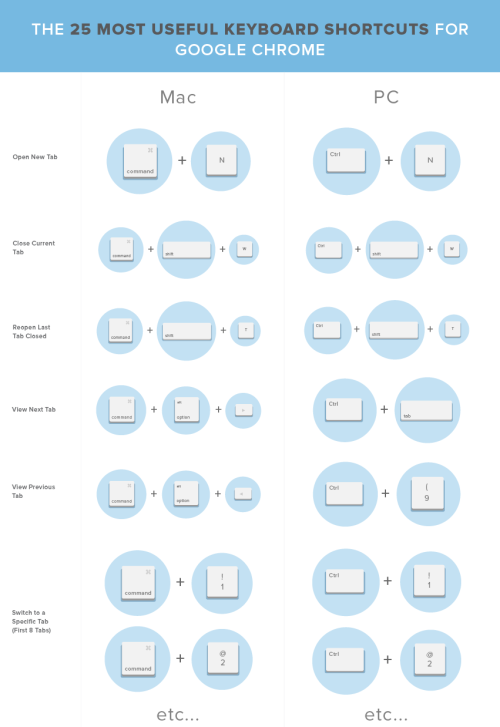Bom Saber
Bom saber
problem solving tips that actually worked for me
Hey there!
If you have a math, or science related subject (like I always do), you’ll find that you really can’t escape analysis and problem solving, especially if you’re majoring in something science or maths related. So I am here to share some tips that actually made studying technical subjects a little bit easier and manageable for me in college:
Practice solving. If you have a subject that requires you to solve, you really have to practice solving, there is no easy way out of this one. This allows you to develop your own technique in solving the problem. You can start by doing the problems you did in class, then venture out to some examples in textbooks, then further into the problems in the textbooks until you get the hang of how the concepts and theories are applied.
Listen during class. I know, it’s boring. But you have to do this. This way, you’ll be able to understand the topic once it is presented to you. In my opinion, it’s better if you let an expert explain it because they know the important bits in the lesson. Then study it afterwards on your own to develop your own techniques.
Ask your professors. Don’t be afraid to ask questions in class. Or if you’re shy, you can ask them after the class. However, it’s important that you ask them about the lesson when you already did your part; meaning: you already studied the material/solution over and over again but there’s just something that you can’t seem to grasp.
Study before the class. Studying the lesson in advance doesn’t hurt. Plus, it works because you already have an idea about it. However, I don’t do it usually. What I do is that prior the discussion, I study the lessons that are going to be essential to the next topic. Example: Say that our topic later will be about introduction to thermodynamics (which includes derivation of various thermodynamic formulas); what I’m going to study instead is the different integration and derivation techniques, and different basic thermodynamics concepts like laws of thermodynamics. This ensures me that I know the prerequisite lessons of the next topic in class.
Absorb the conceptual parts of the topic first. Before diving into the problems itself, try to digest the concepts or theories behind it first. This way, you can understand which information is important and easily think of a solution because you know the problem’s framework. Even when your professor gives you a problem that seems different from your other sample problems, the concepts will still be the same throughout.
Reverse engineer the solution. Reverse engineering is reading and understanding your solution from bottom to top. I do this to make connections while going through the solution. I usually ask myself “‘where did this come from?’, ‘why did this happen?’, or ‘why is the answer like this?’” It allows me to look into the parts that I missed which are usually concepts or theories that I forgot to apply in solving the problem.
Look for key terms or phrases. There are some problems that put in information that may seem unimportant, but actually is really important. Examples such as the phrases constant velocity, constant acceleration, starting from rest, accelerate uniformly, reversible isothermal, adiabatic conditions, isobaric/isochoric compression/expansion, etc., are easy to miss but actually gives you vital information especially when solving a problem.
Try to ask yourself how or why it happened in every step of the solution. You can do this to gauge your mastery of the lesson. If you can answer yourself confidently, then you’ve studied well enough. But, if you can’t or if you feel that it’s not enough, then you better get your pen, paper, and calculator to practice some more.
If you have to draw it, draw it. Some problems need the use of your imagination, and these problems are the ones that get tricky most of the time. It’s easier to draw each of the time frames that are important so you get the sense of what’s going on between these pictures. This way, you’ll know which information you’re missing and which ones are you failing to take into account.
It’s okay to be messy and slow while practicing. Not all of time you can solve in a tumblr-esque manner because, dude, tumblr notes or solutions are soooo pretty to look at, BUT, what’s more important is that you understand each step of the solution and how the answer came to be 8.0658 m/s directed 32° south of west. So it’s okay to have dashes, strikethroughs, and crosses on your scratch paper, as long as you’re learning, a messy solution on a paper you’re not going to submit to your professor is fine.
IF YOU’VE REALLY GOTTEN THE HANG OF SOLVING IT, try to solve a fresh set of problems as fast and accurately as you can. Try to solve as if you’re in an exam. This is also to gauge how well you’re prepared for it, but you need to do this accurately. I repeat, accurately. It doesn’t work if you’ve finished it in less than an hour but all of your answers are wrong.
Rest. If you know that you’ve done a good job, then take your mind off of everything first and let it wander to wherever it wants to wander. You deserve it ✨
More Posts from Lokarprincipal and Others
Happy halloween 🎃 🎃 🎃 🎃
Halloween cat
Lindo

fotopassion7


So cute
Bem completo. 😀

Study Techniques:
SQ3R Reading
The Pomodoro technique
Online Pomodoro timer
Feynman Technique
100 Things to do in your study break
Develop active learning strategies
Cramming (last minute option)
Study Methods, Tips, and Resources:
How to make flashcards (electronic and paper)
What to write on flashcards
Uses for flashcards
Creating and using mindmaps
Studying using textbooks
The benefits of textbooks
How to annotate
Tools for referencing
Tips for visual learners
How to read journal articles critically (by marielstudies)
Top 5 Study Tips to Achieve your Study Goals
How to pull an all nighter
How to pull an all nighter (2)
Studying vocabulary
Study guides
How to create a study guide (by studyspoinspo)
Using whiteboards
Assignment Calculator
Learning how to learn (by strive-for-da-best)
Get good grades (Youtube)
Memory:
Learn how to memorise and find the memory techniques that work best for you.
Here’s an interesting article about long term memory.
6 research tested ways to improve your memory.
Here’s an ask about how to memorise material.
An ask about forgetting material within a few hours.
Some memory tips (by astackoftextbooks)
Learn instead of memorising
Thinking and memorising
Time Management:
How to prioritise tasks
Apps for scheduling
Creating a revision timetable
A post about making a timetable (by grxeek).
How to keep your revision focused
An online study planner.
Motivation/Procrastination:
Reasons to study
Blocking apps/extensions for phones and computers.
Reasons to study now
10 tips for getting started on an academic task
How to deal with family distracting you from study
How to stop procrastinating (Youtube)
10 Tips for managing procrastination
Questions to ask yourself for motivation
How to improve your concentration
Quick concentration tips
Get Motivated (Wikihow)
Choosing the appropriate study environment
Short and sharp motivation
Stress Relief:
Stress relief techniques and ideas
The 10 Best Yoga Poses for Stress Relief
Relaxing Yoga Poses for Beginners
20 Easy Steps to Stress Relief
Relaxation Techniques
23 Science Backed Ways to Reduce Stress
25 Destressing Techniques
Deep Breathing Exercises
Three Guided Relaxation Videos
Vent Anonymously Online
A sleep calculator here which will calculate when you should go to sleep/wake up (depending on what you’re working out) based on sleep cycles. This will make sure that you wake up refreshed and ready to work.
Problems with sleep
Failure anxiety
Do nothing for 2 minutes
Calm (meditation site)
Health:
There’s also some information here about studying with mental illness from MIND.
There’s a really great post here about depression in university (by landofstories)
There’s a similar post here about studying with depression (by bloggerforstudentprogress)
Studying with ADHD
Studying maths with dyscalculia
Managing test anxiety
Self help: test anxiety
Emergency Compliment (for when you’re feeling down)
Studying with dyslexia
Revision and exams for people with dyslexia
Study skills for dyslexic students
How I coped with OCD at university
Study skills and OCD
Study skills and OCD PDF
Music:
Nature sounds in calmsound
Sounds of rain
Beethoven
Coffee shop sounds
More coffee shop sounds
Mix sounds (soundrown)
Sounds of the ocean
Whitenoise
Study mixes on 8tracks
Music to boost concentration
For the exam:
Exam preparation
Exam life hacks (by studyblob)
The best ways to prepare for exams
Exam tips
The day before an exam
Tips on Taking Multiple-Choice Tests
How to write a great essay (by englishlit-chic)
Psychology Essay Exams (gives an example and how to answer)
Looking after yourself after exams
Oral tests and exams
Writing and presenting a good speech
Links, Games, etc.:
Live panda camera (for destressing; you wouldn’t believe the amount of time I spend watching this camera).
Live animals
Try to find the ten gnomes
Origami
Create your own nebula
Easy magic tricks
DIY Home Spa (BY @recoverykitty)
Brownie in a cup
Cookie in a cup
NINJA DE TECLADO



this will save you so much time! (and make you look like a pro lol) (here’s the link!)
He is hungry.
Ela é muito gata.
Isis Valverde atordoa de lingerie - Modelsgram Vídeos
Isis Valverde atordoa de lingerie – Modelsgram Vídeos
Isis Valverde encantou seus fãs e seguidores na tarde desta sexta-feira (16) em uma série de fotos e vídeos postados em sua conta oficial no Instagram. (more…)

View On WordPress
-
 pelandrasromis liked this · 1 year ago
pelandrasromis liked this · 1 year ago -
 jay-dozed-off liked this · 2 years ago
jay-dozed-off liked this · 2 years ago -
 ameliejeannelaurent liked this · 2 years ago
ameliejeannelaurent liked this · 2 years ago -
 perfectlyqualitycandy reblogged this · 2 years ago
perfectlyqualitycandy reblogged this · 2 years ago -
 perfectlyqualitycandy reblogged this · 2 years ago
perfectlyqualitycandy reblogged this · 2 years ago -
 hatik21 liked this · 2 years ago
hatik21 liked this · 2 years ago -
 cryptid-of-the-east liked this · 2 years ago
cryptid-of-the-east liked this · 2 years ago -
 winterturtlesstuff liked this · 2 years ago
winterturtlesstuff liked this · 2 years ago -
 gatheryepens reblogged this · 2 years ago
gatheryepens reblogged this · 2 years ago -
 dontwannastudybutihaveto liked this · 2 years ago
dontwannastudybutihaveto liked this · 2 years ago -
 cravingstudyvalidation reblogged this · 2 years ago
cravingstudyvalidation reblogged this · 2 years ago -
 cravingstudyvalidation liked this · 2 years ago
cravingstudyvalidation liked this · 2 years ago -
 lipstickandtearsstxins liked this · 3 years ago
lipstickandtearsstxins liked this · 3 years ago -
 statues-of-snow liked this · 3 years ago
statues-of-snow liked this · 3 years ago -
 h-otiosum liked this · 3 years ago
h-otiosum liked this · 3 years ago -
 hazelgracelancaster2002 liked this · 3 years ago
hazelgracelancaster2002 liked this · 3 years ago -
 lostmyeraser reblogged this · 3 years ago
lostmyeraser reblogged this · 3 years ago -
 bentbookspine liked this · 3 years ago
bentbookspine liked this · 3 years ago -
 theunfocusedbrat liked this · 3 years ago
theunfocusedbrat liked this · 3 years ago -
 enchantedengland liked this · 3 years ago
enchantedengland liked this · 3 years ago -
 ndobi reblogged this · 3 years ago
ndobi reblogged this · 3 years ago -
 hugefatballs liked this · 3 years ago
hugefatballs liked this · 3 years ago -
 germdyke liked this · 3 years ago
germdyke liked this · 3 years ago -
 jayjay-barnes liked this · 3 years ago
jayjay-barnes liked this · 3 years ago -
 schrodingerscatastrophes liked this · 4 years ago
schrodingerscatastrophes liked this · 4 years ago -
 frostiok-1 liked this · 4 years ago
frostiok-1 liked this · 4 years ago -
 prvncecaspian liked this · 4 years ago
prvncecaspian liked this · 4 years ago -
 cactus-extraordinaire liked this · 4 years ago
cactus-extraordinaire liked this · 4 years ago -
 chickenuggin liked this · 4 years ago
chickenuggin liked this · 4 years ago -
 celesolaris liked this · 4 years ago
celesolaris liked this · 4 years ago -
 nylostudiesmath liked this · 4 years ago
nylostudiesmath liked this · 4 years ago









